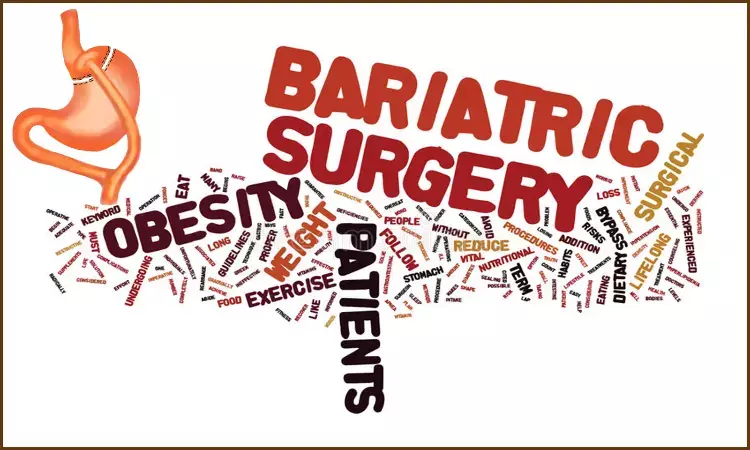- Home
- Medical news & Guidelines
- Anesthesiology
- Cardiology and CTVS
- Critical Care
- Dentistry
- Dermatology
- Diabetes and Endocrinology
- ENT
- Gastroenterology
- Medicine
- Nephrology
- Neurology
- Obstretics-Gynaecology
- Oncology
- Ophthalmology
- Orthopaedics
- Pediatrics-Neonatology
- Psychiatry
- Pulmonology
- Radiology
- Surgery
- Urology
- Laboratory Medicine
- Diet
- Nursing
- Paramedical
- Physiotherapy
- Health news
- Fact Check
- Bone Health Fact Check
- Brain Health Fact Check
- Cancer Related Fact Check
- Child Care Fact Check
- Dental and oral health fact check
- Diabetes and metabolic health fact check
- Diet and Nutrition Fact Check
- Eye and ENT Care Fact Check
- Fitness fact check
- Gut health fact check
- Heart health fact check
- Kidney health fact check
- Medical education fact check
- Men's health fact check
- Respiratory fact check
- Skin and hair care fact check
- Vaccine and Immunization fact check
- Women's health fact check
- AYUSH
- State News
- Andaman and Nicobar Islands
- Andhra Pradesh
- Arunachal Pradesh
- Assam
- Bihar
- Chandigarh
- Chattisgarh
- Dadra and Nagar Haveli
- Daman and Diu
- Delhi
- Goa
- Gujarat
- Haryana
- Himachal Pradesh
- Jammu & Kashmir
- Jharkhand
- Karnataka
- Kerala
- Ladakh
- Lakshadweep
- Madhya Pradesh
- Maharashtra
- Manipur
- Meghalaya
- Mizoram
- Nagaland
- Odisha
- Puducherry
- Punjab
- Rajasthan
- Sikkim
- Tamil Nadu
- Telangana
- Tripura
- Uttar Pradesh
- Uttrakhand
- West Bengal
- Medical Education
- Industry
Bariatric surgery may significantly reduce CVD risk in obese teens with diabetes

Aurora, Colo. - Cardiovascular disease is the leading cause of death in patients with type 2 diabetes, and youth with severe obesity and type 2 diabetes face a high risk of developing cardiovascular disease during their lifetime. However, in a recently published study in Surgery for Obesity and Related Diseases, researchers at Children's Hospital Colorado(Children's Colorado) determined that the long-term risk of cardiovascular events including heart attack, congestive heart failure, stroke and coronary death was reduced by almost threefold for teenagers with type 2 diabetes who underwent bariatric surgery compared to those whose diabetes was only managed medically.
"The incidence of youth-onset type 2 diabetes is increasing in the U.S., translating to premature mortality from cardiovascular disease and other chronic diseases such as diabetic kidney disease," said Petter Bjornstad, MD, an endocrinologist at Children's Colorado and one of the study's authors. "Bariatric surgery is currently the only treatment available for youth with severe obesity and type 2 diabetes that results in considerable and durable weight loss and improvement in blood sugar levels in the majority of patients. With this study, our intent was to further demonstrate the benefits of bariatric surgery in adolescents by proving that it also leads to significantly lower long-term risks of cardiovascular disease."
Specifically, the study compared the 30-year risk* for cardiovascular disease in two cohorts of adolescents with type 2 diabetes over a period of five years. The patients were participants in one of two multi-center studies led by researchers at Children's Colorado: Teen-Longitudinal Assessment of Bariatric Surgery (Teen-LABS) and Treatment Options of Type 2 Diabetes in Adolescents and Youth (TODAY). The two groups included:
- • 30 Teen-LABS participants, all of whom underwent bariatric surgery and had type 2 diabetes at the time of surgery
- • 63 TODAY participants, all of whom had received medical treatment for type 2 diabetes
The Teen-LABS participants involved in the study had a significantly higher pre-treatment risk for cardiovascular disease than the TODAY participants, with higher blood pressure and cholesterol levels at the outset. However, the study revealed that treatment with bariatric surgery reduced the long-term risk of cardiovascular disease, whereas medical therapy alone was actually associated with an increase in risk among adolescents with type 2 diabetes and severe obesity.
The risk reduction due to bariatric surgery was attributed to improved blood sugar levels, weight loss, changes in blood pressure and an increase in HDL-C ("good" cholesterol) in the Teen-LABS patients.
"The high cardiovascular disease risk observed in TODAY participants, despite their lower baseline BMI, underscores the inadequacy of standard medical therapy in mitigating the risk of cardiovascular events, and calls for more aggressive therapy in this at-risk population," said Thomas H. Inge, MD, PhD, Teen-LABS principal investigator, and director of pediatric surgery and the bariatric center at Children's Colorado. "While longer-term studies are needed to determine whether the risk score predictions hold true, the long-term cardiovascular health prospects associated with bariatric surgery in adolescents appear to be very positive.
https://www.soard.org/article/S1550-7289(20)30509-8/fulltext
Hina Zahid Joined Medical Dialogue in 2017 with a passion to work as a Reporter. She coordinates with various national and international journals and association and covers all the stories related to Medical guidelines, Medical Journals, rare medical surgeries as well as all the updates in the medical field. Email: editorial@medicaldialogues.in. Contact no. 011-43720751
Dr Kamal Kant Kohli-MBBS, DTCD- a chest specialist with more than 30 years of practice and a flair for writing clinical articles, Dr Kamal Kant Kohli joined Medical Dialogues as a Chief Editor of Medical News. Besides writing articles, as an editor, he proofreads and verifies all the medical content published on Medical Dialogues including those coming from journals, studies,medical conferences,guidelines etc. Email: drkohli@medicaldialogues.in. Contact no. 011-43720751


